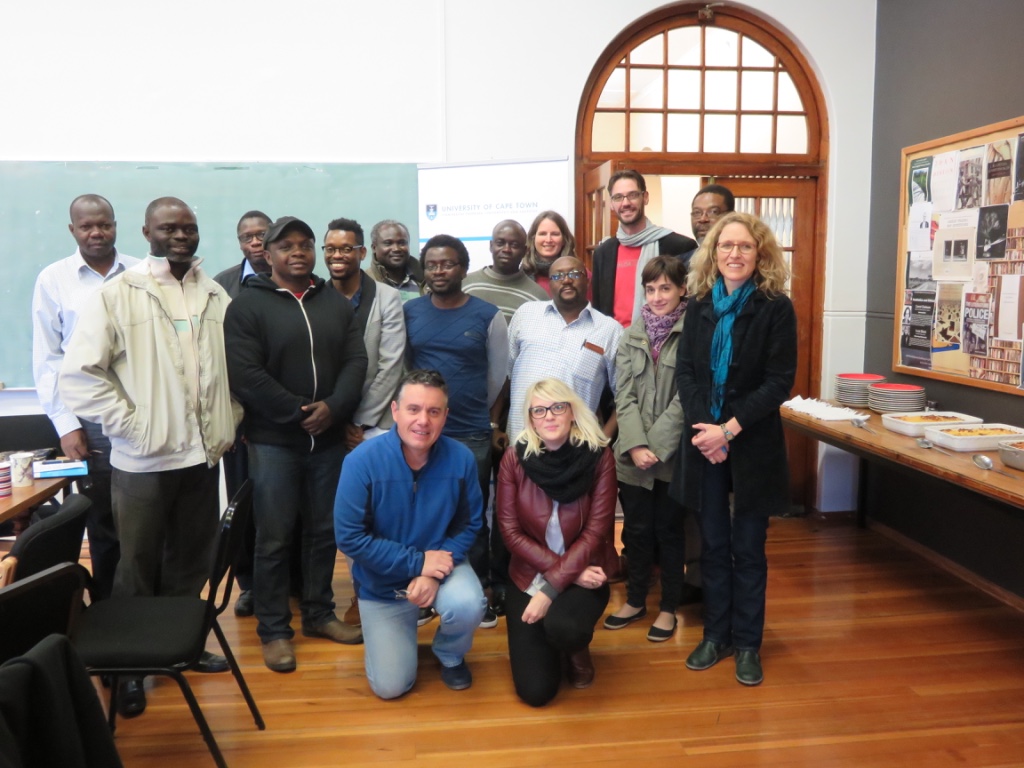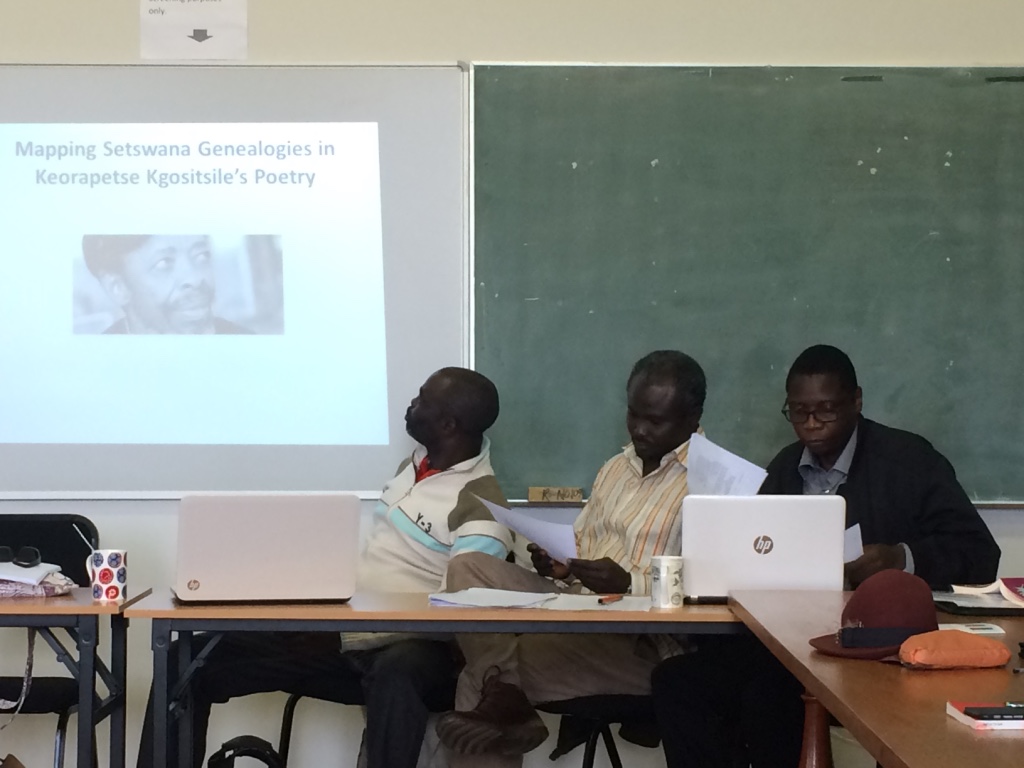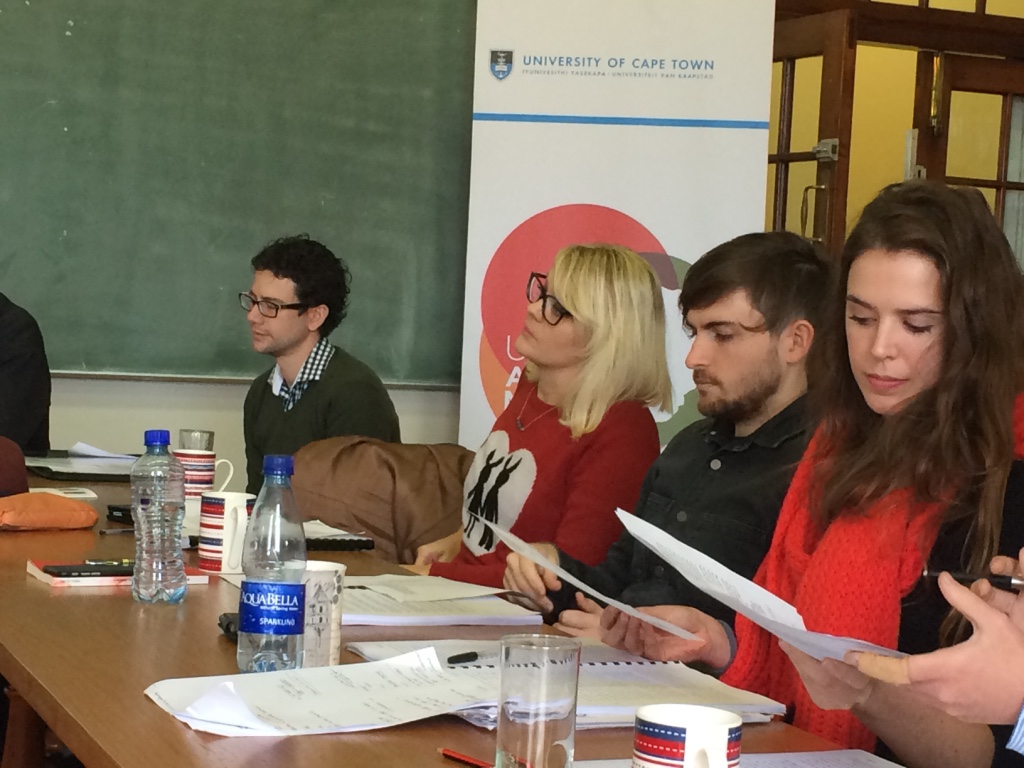African Textualities: Mobilities, Translations, Frames


An intergenerational, Africa-wide group of researchers have been examining the mobility and exchange of African texts across the continent, in a new way. The “African Textualities: Mobilities, Translations, Frames” workshop, which was held at the University of Cape Town in May, forms part of a UCT-led research initiative aimed at advancing African collaboration in literary and cultural studies, while subjecting the terms and processes of knowledge-production, transfer and exchange to critical scrutiny.
Coordinated by Prof. Meg Samuelson (UCT Department of English Language and Literature), “African Textualities: Mobilities, Translations, Frames” was made possible thanks to two-year research funding from the UCT Programme for the Enhancement of Research Capacity (PERC) African Collaboration Grant. This funding has enabled the individual mobility of project members between the universities of Cape Town and Kenya respectively. Local team members include: Professor Harry Garuba (UCT Centre for African Studies), Drs Christopher Ouma, Hedley Twidle, Sandy Young, incoming English lecturer Khwezi Mkhize and postdoctoral fellow Philip Aghoghovwia (UCT Department of English Language and Literature). Nine graduate students from the English and African Studies departments are on the research team. Additional members include Pier Paolo Frassinelli (University of Johannesburg), Okello Ogwang; Benge Okot and James Ocita (Makerere University), Emmanuel Ngwira (University of Malawi), Senayon Olaoluwa (University of Ibadan) and Mbugua wa Mungai (Kenyatta University).

The five-day workshop (25-29 May) was also concerned with intergenerational exchange. Participating students benefitted from the opportunity to present their thesis work in progress before an international group while also participating in the many open discussions that informed the meeting. Presentations included perspectives on oceanic travel and gendered transnationalism by James Ocita (Makerere) and Emmanuel Ngwira (Malawi); discussion of literary and cultural magazines by Okello Ogwang (Makerere) and Christopher Ouma (UCT); presentations tracking travelling texts and theories by Sandy Young (UCT), Senayon Olaoluwa (Ibadan) and Philip Aghoghovwia (UCT); the framing of comparison and traversal of meaning in various “paper regimes” by Hedley Twidle (UCT) and Khwezi Mkhize (UCT); reflections on African literatures vis-a-vis world literary debates by Pier Paolo Frassinelli (UJ), Meg Samuelson (UCT) and in a joint presentation on the different circuits of value traversed by the canonical Ugandan poem by Okot B’Pitek Song of Lawino / Wer par Lawino in English and Acholi respectively. “The latter project in particular shows the significant contributions to scholarship that can be made through intra-African collaborative research” says Prof Samuelson.

Future plans include the production of a special journal issue that will be edited by Dr. Mbugua wa Mungai (Kenyatta University), A/Prof Meg Samuelson and UCT postdoctoral fellow Philip Aghoghovwia - in what will be a truly ‘transnational and intergenerational’ collaboration. In the near future, the group would like to establish a sustainable virtual platform that will enable knowledge sharing and exchange, collaborative writing as well as host a discussion board in which graduate students across these institutions are able to speak to one another.